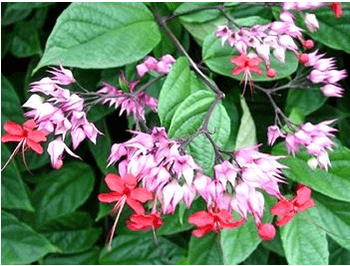EFFECT OF THE AQUEOUS EXTRACT OF CLERODENDRUM THOMSONIAE LINN (VERBENACEAE) LEAVES ON TYPE 2 DIABETIC WISTAR RATS INDUCED BY THE MACAPOS1 TYPE DIET AND DEXAMETHASONE
Keywords:
antidiabetic, aqueous extract, Clerodendrum thomsoniae leaves, Dexamethasone, hypoglycemic, MACAPOS 1 dietAbstract
Aim and objective: Clerodendrum thomsoniae leaves are used in Cameroon to manage diabetes and its related disorders. The study aimed at investigating the antidiabetic effect of the aqueous extract on diet and dexamethasone induced diabetic rats.
Methods: Young mature leaves of C thomsoniae were dried, finely powdered and submitted to aqueous extraction. The dehydrated extract was tested in rats at 3 doses 312.5, 625 and 1250 mg/kg based on the local use of the plant. The effect of the extract on the fasting blood glucose in normoglycemic rats and MACAPOS 1 type diet induced diabetic rats, using respectively glibenclamide and metformin as positive control groups, were investigated.
Results: AECT significantly reduced blood glucose levels in normoglycemic rats (p<0.05) two hours after administration, from 83±2 mg/dL to 57.39±1.7 mg/dL with the dose of 1250 mg/kg. given the highest reduction rate of 30.86%. In normoglycemic rats 30 minutes after oral glucose overload, the maximum reduction rate was observed with glibenclamide 5 mg / kg and calculated at 49.90% followed by 36.39%, for the extract at 1250 mg / kg. After 30 days of repeated oral administration, AECT produced a reduction on blood glucose levels (p<0.05) in type 2 diabetic rats. This reduction in blood sugar was much more expressed with the dose of 1250mg/kg (73.52±0.71 mg/dL) followed by metformin 38mg/kg (70.21±0.89 mg/dL) as the normal control with no significant difference (P < 0.05).
Conclusion: These results show that the antidiabetic activity of AECT can be explained by insulin stimulating effect, also give support to the traditional use of this plant.

Peer Review History:
Received: 1 April 2021; Revised: 3 May; Accepted: 10 June; Available online: 15 July 2021
Academic Editor: Dr. Asia Selman Abdullah , Al-Razi university, Department of Pharmacy, Yemen, asia_abdullah65@yahoo.com
, Al-Razi university, Department of Pharmacy, Yemen, asia_abdullah65@yahoo.com
Reviewer(s) detail:
Dr. Terhemen Festus Swem , Department of Veterinary Physiology and Biochemistry, College of Veterinary Medicine, Federal University of Agriculture, Makurdi, Benue State, Nigeria, swemfestus422@gmail.com
, Department of Veterinary Physiology and Biochemistry, College of Veterinary Medicine, Federal University of Agriculture, Makurdi, Benue State, Nigeria, swemfestus422@gmail.com
Taha A.I. El Bassossy , Medicinal and Aromatic Plants Department, Desert Research Center, Cairo, Egypt, tahachemist2008@gmail.com
, Medicinal and Aromatic Plants Department, Desert Research Center, Cairo, Egypt, tahachemist2008@gmail.com
Prof. Dr. Ali Gamal Ahmed Al-kaf , Sana'a university, Yemen, alialkaf21@gmail.com
, Sana'a university, Yemen, alialkaf21@gmail.com
Downloads

Published
How to Cite
Issue
Section

This work is licensed under a Creative Commons Attribution-NonCommercial 4.0 International License.









 .
.